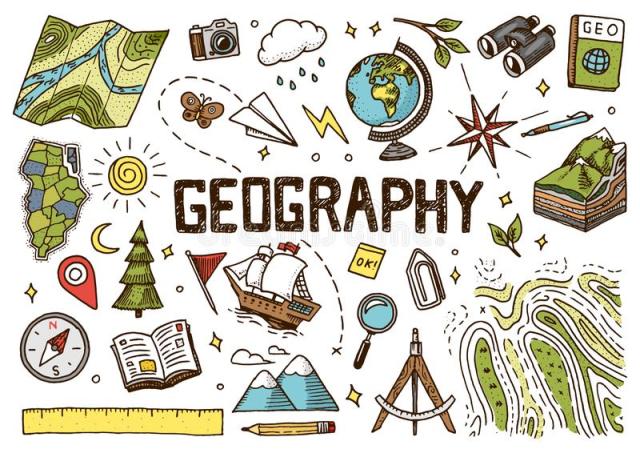‘Our curriculum sets out to inspire a geographical curiosity of the wider world using our local area and our rich and diverse county to develop an understanding of an ever changing environment.’
Geography Intent Statement:
At Myddle, our Geography curriculum is delivered through a sequence of lessons to ensure the teaching of knowledge and skills that are required to meet the aims of the national curriculum are taught. The content of our curriculum allows for a broader, deeper understanding of the four areas of geography identified in the curriculum. It develops contextual knowledge of the location of globally significant places and understanding of the processes that give rise to key physical and human geographical features of the world, along with how they bring about variation and change over time. At Myddle, we intend to develop children’s curiosity and a fascination of the world and its people that will remain with them for the rest of their lives. The units offer a range of opportunities for investigating places around the world as well as physical and human processes. Our lessons are intended to improve children’s geographical vocabulary, map skills and geographical facts and provide opportunities for consolidation, challenge and variety to ensure interest and progress in the subject.
At Myddle CE Primary School:
- A broad range of resources enable children to deepen their understanding and develop geographical skills.
- The study of physical, environmental, human and mapping skills play an integral part of understanding and tracking the changing local and wider world.
- Field work, visits, enquiry led learning and the study of our rural local community enable pupils to explore and be inspired to compare their learning with contrasting locations around the wider world.
- Pupils have the opportunity to explore their own impact on the world through engagement with our Eco-Champions and whole school initiatives to reduce, reuse and recycle.

Implementation:
In KS1, children begin to use maps and recognise physical and human features to do with the local area, building to using maps to explore the continents and oceans of the world in year 2. Further, in year 2, children will begin to compare where they live to places outside of Europe and ask and answer geographical questions.
In KS2, map skills are developed further using digital maps, more keys and symbols and children begin to use more fieldwork skills. Through revisiting and consolidating skills, our lessons help children build on prior knowledge alongside introducing new skills and challenge. All children expand on their skills in local knowledge, place knowledge, human and physical geography, geographical skills and fieldwork.
Across both key stages, children have a range of opportunities to experience geography through practical engaging tasks beyond the classroom. Our lessons come with end of unit assessments to give the teacher and adults leading geography confidence in the progression of skills and knowledge and that outcomes have been met. Knowledge Harvests and Key vocabulary activities are also used at both the beginning and the end of each unit to assess the impact of the teaching and the knowledge and understanding gained. ‘Double Page Spreads’ are also used in Key Stage 2 as an activity for children to further showcase their knowledge.
Impact – Assessment:
We believe that the impact of our Geography curriculum that Geography learning is loved by teachers and pupils across school. Teachers have higher expectations and quality evidence which is presented in the pupils’ books. All pupils will use geographical vocabulary accurately and understand the different strands of geography, with a deep understanding of the Earth’s key physical and human processes. Pupils will begin to make relevant links from geography to other curriculum subjects, such as history and science. They will improve their enquiry skills and inquisitiveness about the world around them, and their impact on the world. All children will realise that they have choices to make in the world, developing a positive commitment to the environment and the future of the planet. Pupils will become competent in collecting, analysing and communicating a range of data gathered. They will be able to interpret a range of sources of geographical information and they will communicate geographical information in a variety of ways. All children in the school will be able to speak confidently about their geography learning, skills and knowledge.
Impact of learning is measured through key questioning skills built into lessons, child-led assessment such as success criteria grids, jigsaw targets and knowledge harvest and key vocabulary grids which are used at the start and at the end of each unit. These are used to assess prior knowledge as well as the knowledge that has been learnt during the unit.
Geography Progression Document
Documents:
Humanities – Core Long Term Plan
Geography National Curriculum
Myddle – Geography National Curriculum Coverage
Humanities Policy May 21